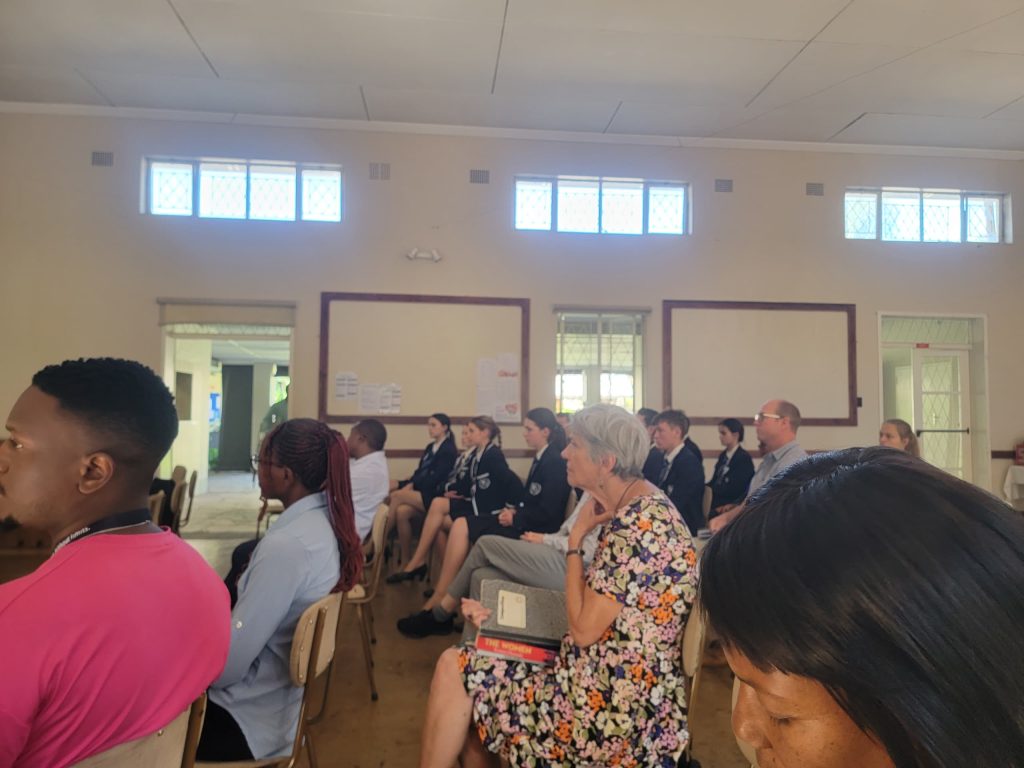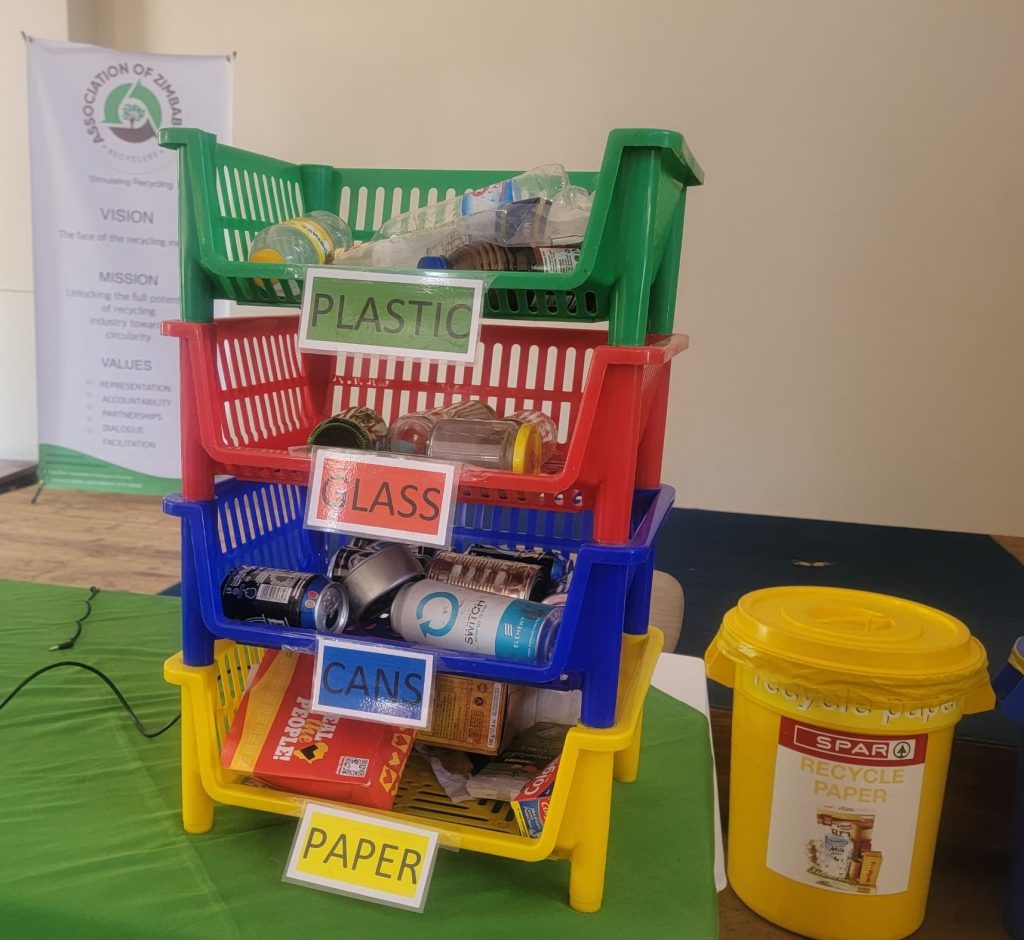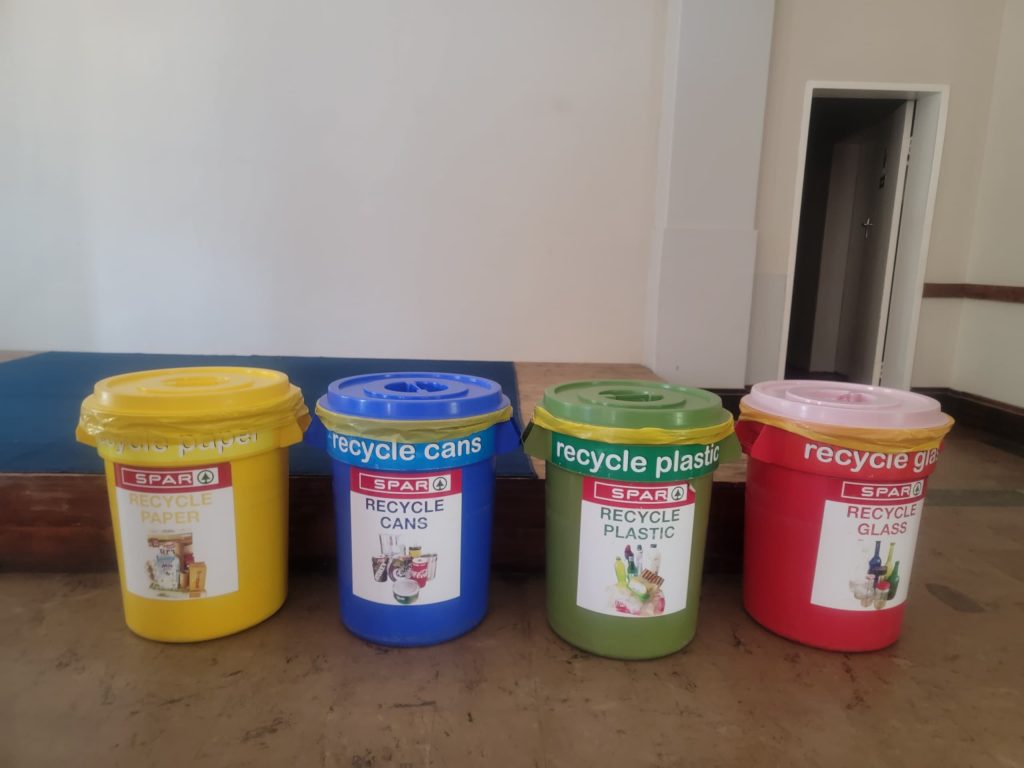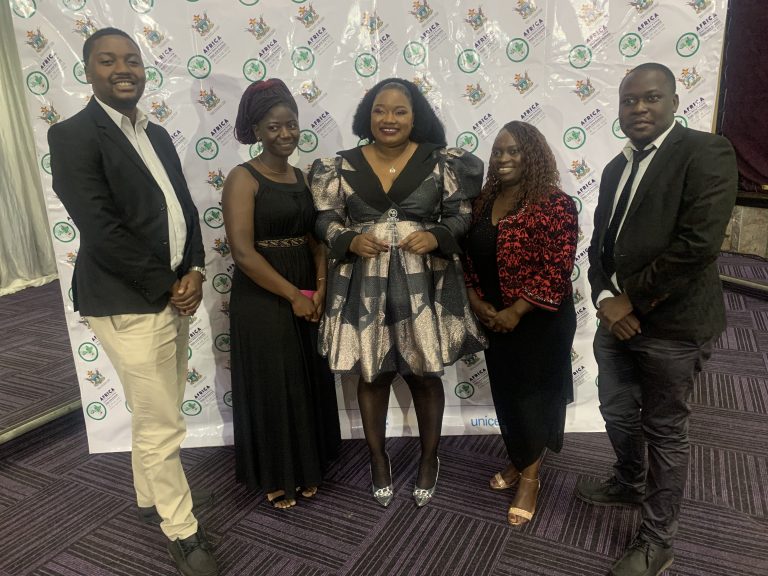Date: Tuesday 5 March 2024 Time: 0900 -1030
Location: Highlands Presbyterian Church

In attendance at the Waste Management Networking meeting was:
- Blackcrystal Consulting
- Zimbabwe Sunshine Group
- UN-Habitat
- St Christopher School
- Miracle missions
- Harare city council
- Association of Zimbabwe Recyclers
- Epworth Local Board
- Environmental Management Agency
- SIDA – Swedish International Development Cooperation Agency
- Harare Sustainable City Initiatives
- Sober Life International
Key discussion areas during Waste Management Networking Meeting
The key discussion areas we discussed in the waste management networking meeting were waste sorting/characterization, the importance of working together to reduce poor waste disposal and counteract waste generation, and the development of Biogas digesters in key biodegradable waste hotspot areas.
1.Waste sorting/characterization

To begin with, waste sorting is a process of separating waste into different elements, these may be glass, paper, plastic and metal. In Zimbabwe, waste is mostly found in dumping sites and at collection points. This shows that most people are not following waste sorting procedures which include separating waste into appropriate classes at source points. Furthermore, waste sorting aids in resource conservation, by extending the lifespan of these materials and preventing further extraction of virgin materials. In addition, it helps in material recovery, recovered material can be sold or used in revenue-generating activities.
On the other hand, waste characterization involves identifying and quantifying the different types of waste generated, understanding their physical, chemical, and biological attributes, and evaluating their potential environmental impacts. Waste characterization plays an important part in any treatment of waste which may occur. It is an important step in waste management planning, and provides essential information for designing appropriate treatment, recycling, disposal, and regulatory compliance strategies.
Zimbabwe Sunshine Group with the help of various agents such as waste technicians, Harare city council and the community are setting up waste transfer stations, also known as material recycling facilities. This is where waste is sorted and separated before being transferred to another area or facility. Lastly, waste is taken for recycling, demolition, or landfilling after the Waste Transfer Station.
2.Waste recycling

Waste recycling is the conversion of waste materials into reusable forms. With the aid of Harare city council and the UN-Habitat, the Zimbabwe Sunshine group hopes to establish biogas digesters to use up biodegradable waste. The biogas digesters are to be established in 5 areas namely Mbare, Mabvuku-Tafara, Highfield, Harare Showground and Epworth
3. Working together
Moreover, one of our key discussion point was working together, to emphasize the idea of collaboration and engagement of various stakeholders in waste management. Working together guarantees that efforts are uniform across various groups and gaps are identified and addressed as and when they appear.
Key takeaways from the Waste Management Networking Meeting
The first thing we agreed as stakeholders present is that we all need to try to ensure the continuity of established projects. This implies the development of policies and mechanisms to enforce and monitor the operation of projects as well as the utilization of assets from established projects.
Secondly, we agreed to develop education and awareness campaigns on waste management in communities. Education and awareness are a tool to build a culture among people of proper waste management.
Furthermore, we need to coordinate and link existing, new and upcoming grassroots waste-related projects. This promotes resource optimization, knowledge sharing, community engagement and empowerment. It creates a more cohesive and effective waste management ecosystem that can address the challenges of waste holistically and sustainably.
Role of organizations and communities in waste management
Firstly, the role of organizations in waste management is resource mobilization to all groups within the community. These resources could be financial-based, knowledge-based or infrastructural. However, the role of community members is active involvement and participation in waste management.
The Waste Management Networking Meeting was a success, with a high turnout of people and stakeholder representatives from various groups. It fostered collaboration, communication, and knowledge dissemination.


